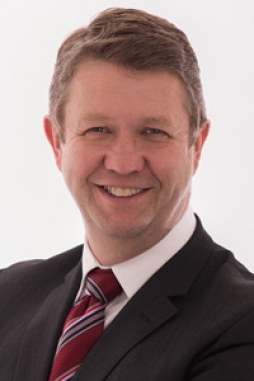 A few years ago, an academic predicted that the last American newspaper would roll off the presses in the next 40 years.
A few years ago, an academic predicted that the last American newspaper would roll off the presses in the next 40 years.
He is one of many who have pronounced the last rites for the printed word – the predominant mass media platform of the last three centuries.
But to paraphrase that excellent 19th Century US editor and novelist Mark Twain, I believe rumours of the demise of the traditional newspaper have been greatly exaggerated.
This particularly applies to titles such as Indian Newslink which, with hard work, consistent ethics and a vital sense of community, has over the last 15 years established an enviable reputation and readership with the Indian and wider New Zealand public.
Reference Points
A traditional newspaper that knows its audience is like a community noticeboard, providing common reference points, information, services and the glue of belonging.
As well as informing its readers, and sometimes challenging them, it also reflects back at them the world in which they live in terms that they understand and appreciate.
While news of the death of newspapers is undoubtedly premature, it is equally true that the digital age presents the established media with unprecedented challenges.
The arrival of the internet and the innovations accompanying it has been called the greatest technological and social revolution since the invention of the printing press.
Nowhere have the changes been more strongly felt than at the cutting edge of the revolution – the media itself.
The Digital Age
The traditional media in particular has felt the cold winds of change as digital forms of information exchange and dispersal have advanced. Websites as sources of news and information have grown in number rapidly and media organisations have leapt at the opportunity to take advantage of this comparatively low-cost way of spreading the news.
The continuing evolution of the digital universe into the far-reaching social media worlds of Twitter, Facebook, YouTube and Instagram have further deepened the challenges for established media – each of them helping to build potentially vast online communities, exchanging information, ideas, gossip and opinion.
The comparative low cost of connecting via the ubiquitous smartphone or tablet, and the almost instant delivery of ‘News’ have cemented their appeal.
Market Fragmentation
The flipside has been the proliferation of media and the fragmentation of the advertising market. Long gone now are the pages and pages of classified advertising, the ‘Rivers of Gold’ that sustained and once made newspapers such a profitable enterprise.
Such profits enabled and sustained quality journalism.
And while media corporations and even small companies have committed to digital platforms as the preferred channel for publication, there is still a great and largely unresolved question: how to make such journalism pay? Equally, how to ensure that it conforms to the traditional ethics and standards of established media?
The Wild West
Today, anyone with a computer and some time on their hands can ‘blog’ and call themselves a journalist. But as recent events have underscored – most notably in Nicky Hager’s book ‘Dirty Politics,’ such new media, still in its infancy, sometimes resembles a kind of moral and ethical Wild West.
In a mature democracy, the Fourth Estate acts not only as a vital source of information, but also fulfils a ‘critical watchdog’ role in keeping those in power honest.
Any dilution of this public duty diminishes the stature and credibility of the media, but also weakens our institutions, not least the political establishment.
To maintain the respect of the public, the media must hold itself to the standards and expectations set for it by tradition and statute.
Sadly, for much of the new digital media, meeting such expectations is at best a work in progress.
I am optimistic, however, that titles with integrity – whether they publish in print or on online – will continue to flourish. In a world wherein information is cheap and immediate, but truth and reflective analysis somewhat more elusive, a reputation for being an honest and reliable broker of news and opinion will count for everything.
As it celebrates its 15th anniversary, I congratulate Indian Newslink for the positive role it has played, and will continue to play long into the future – not only in informing its readers, but also in helping new and existing members of our Indian communities to celebrate their own cultures while feeling at home in New Zealand’s wider society.
David Cunliffe has been a Labour Party Member of Parliament elected from New Lynn Constituency since 2002 MP for New Lynn, prior to which he was an elected MP from the Titirangi Constituency in 1999. He is currently Labour’s Spokesperson for SIS and Regional Development.




